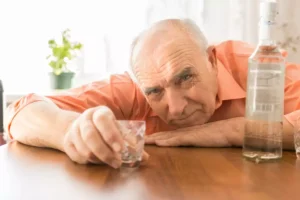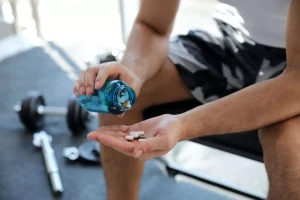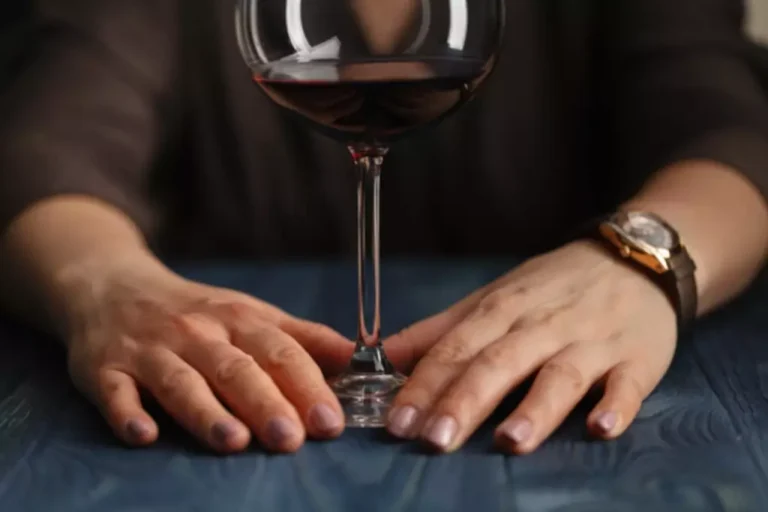
The brain also begins to repair some of the damage and shrinkage you may have experienced while drinking. One study showed that after 6 weeks of abstinence from alcohol, brain volume increases by an average of 2%. The first day is always the hardest, but it’s also an important milestone. After 24 hours without alcohol, your body will start to detoxify and you may experience withdrawal symptoms. Gillian Tietz is the host of the Sober Powered podcast and recently left her career as a biochemist to create Sober Powered Media, LLC. When she quit drinking in 2019, she dedicated herself to learning about alcohol’s influence on the brain and how it can cause addiction.
Beverages To Avoid to Sleep Soundly While Traveling

The quicker you start working on breaking your bad habits, the easier it will be to create a healthier sleep routine. If you’ve entered a stage in your life where you can’t sleep without alcohol, it can be challenging to make a change. Wayne State University tells us drinking booze before bed leads to more crazy dreams, increased risk of snoring, and higher problems with night sweats. For many of us, a glass of wine or a couple of beers before bed feels like an excellent way to relax before sleep. While cirrhosis scars from excessive drinking are irreversible, quitting alcohol and leading a healthier lifestyle can help your liver heal from alcohol-related liver disease.
- Research has shown that progressive muscle relaxation is effective in enhancing relaxation, reducing stress, and improving overall well-being.
- Even if you do fall asleep faster after a drink, you’re likely to have a disturbed night.
- One 2017 meta-analysis found 29 studies that concluded that exercising may be able to improve the quality or the duration of sleep.
Get Help Quitting Drinking
Try to schedule a rewarding activity for this “witching hour” timeframe. As far as pillows go, look for ones with high-quality fill that can be washed or cleaned, says Michelle, Fishberg, co-founder of Slumbr, a sleep wellness company. Plus, dust mites, fungi, dirt and oils build up over time on your pillows, and that can exacerbate your allergies. If you’re all stuffed up, proceed with caution before popping a pill to ease the sniffles.
Eat Dinner a Few Hours Before Bed
- But if you’re committed to sobriety, it’s possible to achieve your goal.
- But they may not be prescribed beyond this as there’s a risk of side effects like withdrawal, rebound insomnia, addiction, and overdose when mixed with alcohol.
- You want a strong mental association between your bed and sleep, so try to keep activities in your bed limited strictly to sleep and sex.
- Alcohol has sedative effects, so it may not immediately look like a culprit for poor sleep.
- Engage in calming activities such as taking a warm bath, reading a book, or listening to soft music.
- Alcohol can cause insomnia because of the damage that alcohol can do to your sleep cycles and circadian rhythm.
Without the influence of alcohol, you might notice that you’re arguing less, and can have more authentic conversations. If you’re still feeling irritable, or if you’re not on the same page as your loved ones, that’s okay too! That’s also common, and a great topic to discuss in a support group. It’s likely the past few days have been challenging as your body is healing from the effects of alcohol. There may be some thoughts like “do I really have to do this for 25 more days!? ” Remember that it will get easier, and you only have to get through one day at a time.


If you have an alcohol abuse problem, you may take longer to fall asleep and get less REM and sleep overall, both when drinking and when in withdrawal. You may also experience insomnia and sleep disturbances when drinking and years after you’ve quit. Another study found seven weeks of CBT-I improved sleep efficiency (the time spent sleeping while in bed), awakenings, and time to fall asleep in recovering alcoholics with insomnia. If you have alcohol use issues, you may experience insomnia when drinking, during withdrawal, and months or years after going sober.
- Once you expel it from your life, the body can invest energy once assigned to battling alcohol’s toxic effects into nurturing and rebuilding itself.
- These immersive soundscapes can make your walk around your neighborhood more immersive, giving you more mental space to connect with yourself and reduce your stress.
- One study shows that this is the reason about 10% of people drink alcohol.
- Unpack your darkest circles under your eyes, and let’s walk through the sleepless town once ruled by alcohol.
- Problems like decreased sleep time and deep sleep and increased light sleep and sleep latency (the time it takes to fall asleep) should clear up with sustained abstinence.
Up to 40% of the general population experiences insomnia, while as many as 72% of people with an alcohol use disorder may have the condition. When you have sleep apnea, drinking can make the breathing interruptions last longer when you are asleep, leading to more awakenings. Studies have shown that people who drink and have sleep apnea are at a much higher risk of traffic accidents than people with sleep apnea who do not drink alcohol.
Mastering Sleep Hygiene: Your Path to Quality Sleep
Establishing good sleeping habits, also known as sleep hygiene, is an essential first step in good sleep. Ideally, you should wake up and go to bed at the same time each day. Using electronics like TV or smartphones before bed should also be avoided. Shaking this addiction and learning to sleep without alcohol can be difficult. The idea of attempting to sleep without alcohol can cause anxiety, which can lead to more drinking, perpetuating the cycle of alcohol abuse. Alcohol can cause insomnia because of the damage that alcohol can do to your sleep cycles and circadian rhythm.

To truly help yourself settle in the night, aim to make these healthy habits part of your evening routine. Changing your bedtime routine may not be easy, so try implementing one or two of these habits first, then tackling the others. Now that you’re well-versed with all the causes and potential solutions how to sleep without alcohol to post-alcohol insomnia, it’s time to put this knowledge into action. Modify routines, reevaluate lifestyle choices, and don’t hesitate to consult a professional if need arises. Creating a consistent pre-sleep routine can also be effective for dealing with insomnia after quitting alcohol.

No responses yet